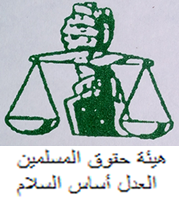12th September, 2024
PRESS RELEASE:
LANDMARK JUDGEMENT ON ISLAMIC VERSUS REGISTRY MARRIAGE: MURIC COMMENDS TAJUDEEN OLADOJA SAN
The Muslim Rights Concern (MURIC) has commended a legal luminary, Tajudeen Oladoja (SAN), for securing a landmark judgement in favour of Islamic marriage thus giving women married under the Shariah the right to share in the inheritance of a husband who had married another woman at the registry.
The commendation was given in a statement credited to the Executive Director of MURIC, Professor Ishaq Akintola. The statement was issued on Thursday, 12th September, 2024.
The full statement reads:
“A major in the Nigerian Army, late Muhammed Arogun Adeniyi, died as a Muslim on 18th October, 2020 and was buried according to Muslim rights. He was survived by three wives: one Christian and two Muslims. Meanwhile his next of kin, Nike Muhammed, who was the daughter of his Christian wife whom he married at the registry, Evangelist Mrs. Olabisi Muhammed, was paid all her father’s entitlements to the exclusion of the other two wives and their children. Apart from properties, the total amount paid to her was N36 million.
“The aggrieved Muslim wives challenged the matter at the Upper Area Court, Ilorin. Nike’s mother asked to be joined in the suit. Her request was granted. She challenged the jurisdiction of the Islamic court to hear the suit since she was married under the Marriage Act. She insisted that his late husband’s properties belonged to her and her daughter alone to the exclusion of the deceased’s old parents and his other two wives. However, the Upper Area Court dismissed her arguments.
“Nike Muhammed and her mother appealed to the Shariah Court of Appeal of Kwara State where they got a surprising reversal of the lower Shari‘ah Court’s decision. The Shariah Court of Appeal of Kwara State ruled on 3rd August, 2020 that it was the marriage Act law that should be used in determining the method of sharing the late major’s inheritance.
“This was where the legal luminary came in. The legal bulldozer, Tajudeen Oladoja took up the case and filed an appeal at the Court of Appeal, Kano, bringing to bear his decades of experience at the bar as a senior learned counsel. The Kano Court of Appeal reversed the Kwara Shari’a Court of Appeal’s decision and upheld the trial Upper Area Court ruling on Islamic inheritance distribution.
“The unanimous judgment in Appeal No. CA/IL/SH/1/2022 delivered on Friday, 23rd August, 2024 by Justice Muhammed Lawal Shuaibu, Justice Abubakar Muazu Lamido and Justice Ahmad Ramat Muhammad directed the daughter of the late Major Mohammed Arogun Adeniyi, Nike Mohammed and her mother, Evangelist Mrs. Olabisi Mohammed, to surrender all the late Major Muhammed Adeniyi’s belongings, properties, benefits and entitlements for distribution to his heirs in accordance with Islamic Law.
“The sociological implication of this landmark judgement is that only Nike Muhammed and her mother had inherited all the properties of the late Major Muhammed Adeniyi while even the deceased’s aged mother and his two Muslim wives got nothing. They were thus left to suffer in abject poverty until the Kano Court of Appeal upturned the decision of the lower court of appeal.
Takeaways from the judgement include the following: One, this case has highlighted the humane nature of Islamic Shari’ah. In the registry marriage system, the only wife and her children will inherit everything belonging to the late husband leaving nothing for his old parents. But the Islamic inheritance system will share the man’s properties among all the wives, the children, the old parents (if any), his siblings, etc.
Two, the judgement established beyond any reasonable doubt that there is indeed a dichotomy between native law and Islamic law when the court said, “…there is in fact exists, a legal dichotomy between native laws and Islamic Law which has now been recognized by the 1999 Constitution. In fact, the 1999 Constitution established three distinct legal systems operating concurrently in Nigeria, the English Common Law and statutes enacted by the various tiers of government, the native law and the custom of the people (as long as it meets the repugnancy test) and Islamic Law, which by its very nature is an absolute law.”
“Three, that the marriage of a Muslim man to a Christian woman under the Marriage Act does not imply a renunciation of his faith. The learned judges declared, ‘It is also pertinent to note that there is no argument as to the fact that the deceased who lived and died as a Muslim, was free to marry a Christian woman.
“The judges continued, ‘The fact that he married the 2nd Respondent under the Marriage Act does not mean that he renounced his Islamic faith. Furthermore, the deceased, being a Muslim, was also entitled to marry more than one wife, but not exceeding four wives at a given time, as ordained in the Holy Quran, in Chapter 4, Verse 3 which reads thus:
‘And if you fear that you will not deal justly with the orphan girls, then marry those that please you of other women, two or three or four. But if you fear that you will not be just, then marry only one or those your right hand possesses. That is more suitable, that you may not be inclined to injustice.
“Adding, ‘Thus, his subsequent marriages under Islamic Law which he had chosen was therefore in consonance with his constitutionally guaranteed right under Section 38 (1) (a) and (b) of the Constitution of the Federal Republic of Nigeria, 1999 (as amended).
“‘The fact that the Major married Evangelist (Mrs.) Olabisi Mohammed under the Marriage Act, does not mean he renounced his Islamic faith. In other words, the deceased has not changed the factory setting of his religion as a Muslim merely by contracting the registry marriage with the Evangelist.
“Four, concerning the determination of the applicable law to govern the estate of a Muslim who married a Christian under the Marriage Act, the Court of Appeal held that, ‘The administration of estate of a person who lived and died as a Muslim but married to a Christian under the Marriage Act is governed by Islamic Law. The deceased Major, though married to his first wife, Evangelist (Mrs.) Olabisi Mohammed, under the Marriage Act, was born a Muslim, lived as a Muslim, and died as one.
“Five, on the method of proper interpretation of statute, the court held thus, ‘The learned Kadis of the Sharia Court of Appeal of Kwara State, Ilorin, are oblivious to the fact that Islamic Law is not the same as Customary Law, as it does not belong to any particular tribe. Thus, it is a complete system of universal law, more certain and permanent, and more universal than even the common law.
“These pronouncements are monumentally crucial for the ongoing debate on the legality or otherwise of Islamic marriage vis a vis statutory marriage or marriage conducted at the registry. This judgement has opened a new window in the Islamic legal circle regarding the eligibility of a woman married under the Shari’ah for the properties of her husband even in the face of a subsisting statutory marriage.
“Tajudeen Oladoja SAN has deployed his well-known courtroom oratory and his long experience at the bar to cut a new path and bring succour to Muslim women who have suffered deprivation and neglect from the Nigerian society’s strict adherence to a highly conservative and ruthless colonial legal system.
“MURIC celebrates this great Muslim SAN for coming out openly to identify with the Shariah legal system and defending it until he secured victory for it. Islamdom will write his name in letters of gold.”
Professor Ishaq Akintola,
Founder/Executive Director,
Muslim Rights Concern (MURIC).





